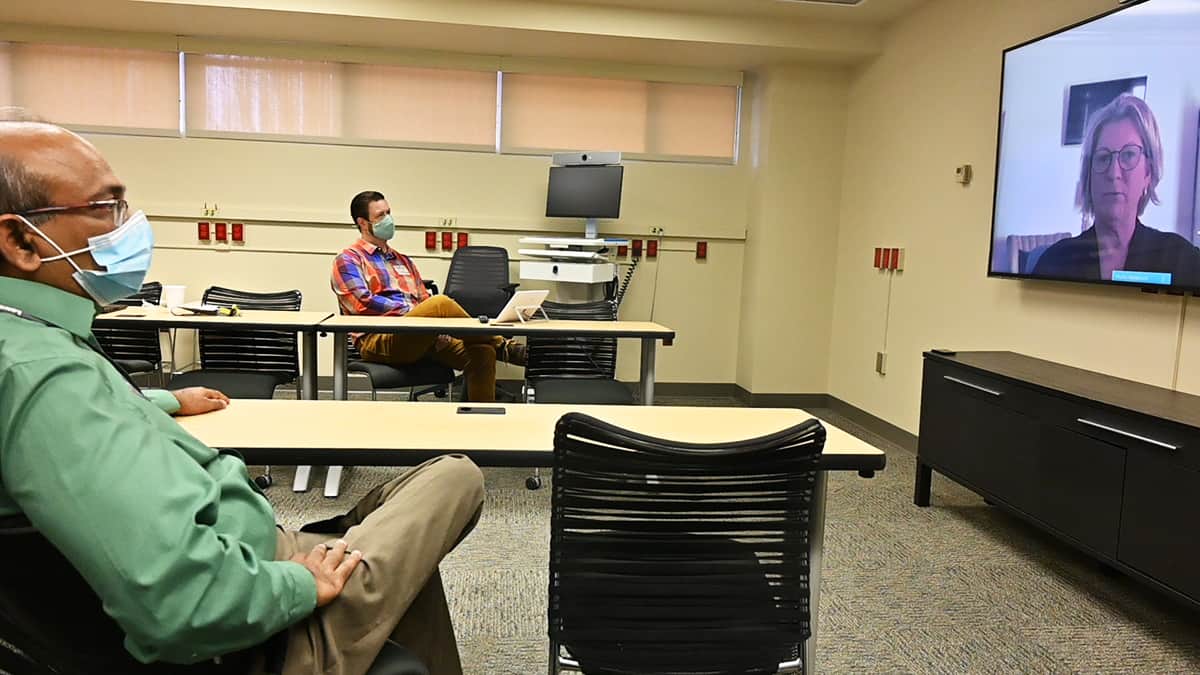UAMS Rural Telehealth Center Receives $1.5 Million to Evaluate Broadband Pilot Program’s COVID-19 Response
| LITTLE ROCK — The University of Arkansas for Medical Sciences (UAMS) Rural Telehealth Evaluation Center has received a $1.5 million federal grant to evaluate the performance of the Telehealth Broadband Pilot Program in preventing, preparing for and responding to COVID-19.
The Health Resources & Services Administration’s Federal Office of Rural Health Policy awarded the grant for the evaluations in four counties in separate regions of the United States. The center is a part of the UAMS Institute for Digital Health & Innovation and specializes in the assessment of digital health solutions from effectiveness to financial perspectives.
“UAMS has been a leader in digital health for many years, and we are excited to use that experience in determining what methods and technologies can be of best use to rural providers in fighting the COVID-19 pandemic,” said Joseph Sanford, M.D., the institute’s director. “From this grant we will also give policymakers needed data and analyses to advance digital health in rural America.”
In August, the institute received a four-year $3.8 million grant to establish the Rural Telehealth Resource Center. With the additional funding of $1.5 million, the center will evaluate the use of digital health technologies to reduce the risk of COVID-19, assess the readiness to respond to COVID-19 using them and analyze their effectiveness in limiting the spread of the disease.
Led by Hari Eswaran, Ph.D., the institute’s director of research, the institute’s researchers will examine how well digital health works in four communities which are combatting COVID-19. Their research findings about digital health and the pandemic will help to focus funding where it can be of the most help in underserved rural areas.
In its research, the center will work in collaboration with the university’s College of Medicine, College of Pharmacy and College of Public Health. The grant funding is provided through the Coronavirus Aid, Relief and Economic Security (CARES) Act.
“Because of longstanding disparities in access to health care in rural areas, especially access to specialists, wisely using the financial resources we have in digital health to close those gaps is vital to improving care there,” Eswaran said. “The COVID-19 pandemic has only increased the need to improve access in rural settings.”
